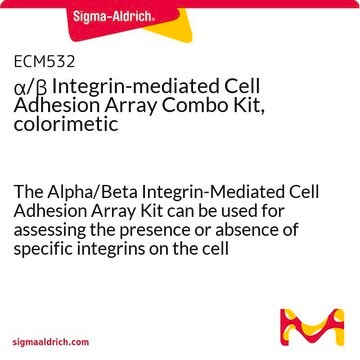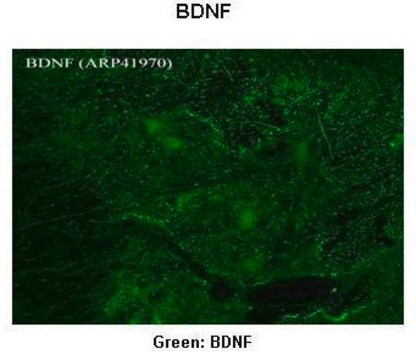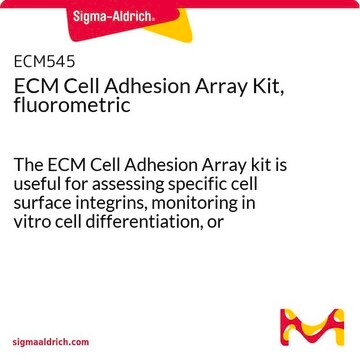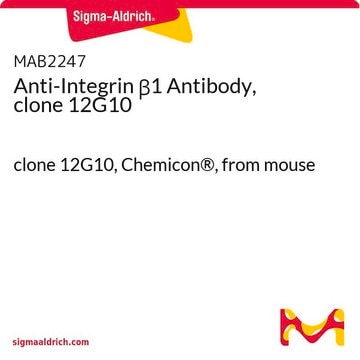ECM535
α/β Integrin-mediated Cell Adhesion Array Combo Kit, fluorimetric
The Alpha/Beta Integrin-Mediated Cell Adhesion Array Kit can be used for assessing the presence or absence of specific integrins on the cell surface.
Synonym(s):
Alpha/beta integrin cell adhesion kit
About This Item
Recommended Products
Quality Level
species reactivity
human
manufacturer/tradename
Chemicon®
technique(s)
cell based assay: suitable
NCBI accession no.
detection method
fluorometric
shipped in
wet ice
Gene Information
human ... ITGA1(3672)
Application
Cell Structure
For Research Use Only. Not for use in diagnostic procedures.
Packaging
Components
Beta Integrin Array Plate: (PN: 90600) One 96-well plate with 12 strips. Each strip contains one well each of the mouse anti-beta integrin monoclonal antibodies: (beta1, beta2, beta3, beta4, beta6, alphaVbeta5, and alpha5beta1), and one goat anti-mouse negative well. See the Beta Integrin plate layout on the insert data sheet.
4X Cell Lysis Buffer: (Part No. 90130) One bottle - 16 mL
CyQuant GR Dye: (Part No. 90132) Two vials - 75 μL each
Assay Buffer: (Part No. 90601) Two bottles - 100 mL each
Storage and Stability
Precautions
No data is available on the biological toxicity of CyQuant GR™ dye. This reagent binds to nucleic acids, and as such, should be treated as a potential mutagen which may cause cancer and heritable genetic damage. Handle with caution. The DMSO stock solution should be handled with special caution as DMSO can facilitate the entry of organic molecules into tissues.
Legal Information
Disclaimer
Signal Word
Danger
Hazard Statements
Precautionary Statements
Hazard Classifications
Aquatic Acute 1 - Aquatic Chronic 2 - Eye Dam. 1
Storage Class Code
10 - Combustible liquids
Regulatory Listings
Regulatory Listings are mainly provided for chemical products. Only limited information can be provided here for non-chemical products. No entry means none of the components are listed. It is the user’s obligation to ensure the safe and legal use of the product.
JAN Code
ECM535:
Certificates of Analysis (COA)
Search for Certificates of Analysis (COA) by entering the products Lot/Batch Number. Lot and Batch Numbers can be found on a product’s label following the words ‘Lot’ or ‘Batch’.
Already Own This Product?
Find documentation for the products that you have recently purchased in the Document Library.
Our team of scientists has experience in all areas of research including Life Science, Material Science, Chemical Synthesis, Chromatography, Analytical and many others.
Contact Technical Service










